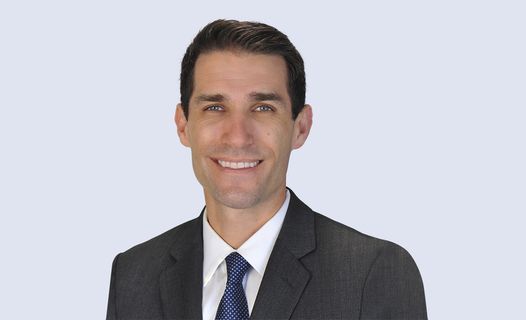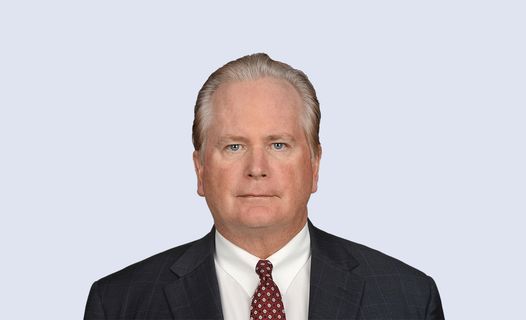It’s hard to keep up with all the recent changes to labor and employment law. While the law always seems to evolve at a rapid pace, there have been an unprecedented number of changes for the past few years—and this past month was no exception.
In fact, there were so many significant developments taking place during the past month that we were once again forced to expand our monthly summary well beyond the typical “Top 10” list. In order to make sure that you stay on top of the latest changes, here is a quick review of the Top 14 stories from last month that all employers need to know about:
- Labor Department’s New 4-Factor Rule Attempts To Limit Joint Employment – The U.S. Department of Labor finalized its rule that attempts to limit the scope of joint employment liability for wage and hour matters on January 12. Although much remains to be seen, this rule may usher in a new era, and could lead to fewer businesses being found to be joint employers by a court or agency when it comes to minimum wage, overtime, and other similar liability under the Fair Labor Standards Act (FLSA). However, many questions still remain about various aspects of this rule, particularly how courts will apply the test’s four factors as well as the alternative “catch-all” test. You should now reexamine your business models to capitalize on the new standard, which should take effect on or about March 16, 2020 (read more here).
- New Jersey Approves Greater Protections For Employee Mass Layoffs – Thanks to a new law just signed into effect by Governor Phil Murphy, New Jersey employers will soon be required to provide severance pay and increased advance notice to most workers affected by a mass layoff or termination or transfer of operations. With the January 21 expansion of the Millville Dallas Airmotive Plant Job Loss Notification Act – otherwise known as the New Jersey WARN Act – most doing business in the state will have to provide a week’s worth of pay for each year of service under an employee’s belt as part of any mass layoff or termination or transfer of operations. The law making New Jersey the first state in the country to mandate severance pay during layoffs won’t take effect until July 19, 2020, but employers should begin to prepare now. Below is a summary of the law’s key points, along with a series of FAQs to help with your compliance efforts (read more here).
- Federal Court Preserves Use Of Mandatory Arbitration Agreements In California – A federal judge extended the reprieve that permitted California employers to escape the grasp of a newly enacted law that aimed to prevent them from utilizing mandatory arbitration agreements with their employees. After granting a temporary restraining order that pressed pause on the new law before it could take effect on January 1, the court granted a full preliminary injunction on January 31 that will block the law during the court proceedings that will examine the legality of the new statute. This is good news for California employers, but because things could evolve rapidly over the coming weeks and months, you will want to pay particular attention to upcoming developments to ensure you are in compliance (read more here).
- Coronavirus Guide For Employers: Be Proactive, But Don’t Panic – Although news outlets may be preoccupied with alarming updates about the spread of coronavirus – including several cases identified in the United States – employers don’t need to panic quite yet. As of January 27, the Centers for Disease Control and Prevention has labeled the current coronavirus outbreak as a serious public health threat but one where the immediate health risk to the general American public is considered low. At this point, the best course of action is to proactively arm yourself with information about best practices to keep your workforce safe and monitor developments to determine if additional steps will need to be taken. What should employers keep in mind during the early stages of this outbreak? (read more here)
- Sexual Harassment Payouts Hit All-Time High In 2019 – 10 Takeaways From Latest EEOC Statistics – Employers paid out a record $68.2 million to those alleging sexual harassment violations through the EEOC in 2019, shattering the all-time record by over $10 million and reminding us all that the #MeToo movement continues to be a major influence on workplaces across the country. This is just one of many interesting findings released by the Equal Employment Opportunity Commission (EEOC) in its annual data summary covering fiscal year 2019 (which wrapped up in September). The January 24 release is full of eye-opening statistics that could help you set your compliance priorities for 2020 and beyond. Here are 10 thought-provoking takeaways from the EEOC’s annual summary (read more here).
- Florida Employers Must Ring In New Year With Minimum Wage Increase – Thanks to a constitutional provision that requires Florida to adjust its minimum wage each year to match inflation, employers in the Sunshine State must now pay their employees at least $8.56 per hour. The 10-cent increase was immediately effective when the clock struck midnight and ushered in 2020. But employers might not want to get too comfortable with the current level. Come November, Florida citizens may be voting on a massive jump that could ultimately increase the minimum wage to $15.00 per hour (read more here).
- New Jersey Ramps Up Misclassification Laws, But Businesses Dodge Bullet (For Now) –New Jersey businesses will now face an increased slate of potential penalties for misclassification violations thanks to a series of bills signed into effect by Governor Phil Murphy on January 21, but gig economy companies can breathe a sigh of relief because lawmakers declined to adopt a large-scale misclassification California-like law that could have seen tens of thousands workers classified as employees instead of contractors. The six bills signed into effect emerged from a worker misclassification task force, but thanks in part to the controversy that has plagued California’s AB-5 – which codified the infamous ABC test and has caused countless headaches in workers and businesses alike – the state decided not to pursue a proposal that would have approached that same territory. But the reprieve may only be temporary: lawmakers and worker advocates alike are already heard at work in the 2020 legislative session to pass a modified ABC test that would upend the current classification structure (read more here).
- California Truckers Get Biggest Misclassification Win Yet; Gig Economy Companies Await Their Fate – The federal court that had granted a temporary restraining order on New Year’s Eve blocking California’s misclassification law from taking effect against the trucking industry extended that ruling on January 16 by granting a preliminary injunction which will block AB-5 as to truckers for the foreseeable future. It’s a big win for the trucking industry in the state, and it keeps alive the hope that the ABC test will never be applied for those California businesses – and truck drivers – in the motor carrier field. But of course, we continue to wait for the other shoe to drop: will a court also block AB-5 when it comes to gig economy companies? (read more here)
- A New Year, A Higher California Minimum Wage – It has become somewhat of an annual tradition in California: with every new year comes a further increase in the state’s minimum wage. And this year is no different. In 2020, the new state minimum wage for employers of 26 or more employees is now $13.00 per hour, and the state minimum wage for employers of 25 or fewer employees just increased to $12.00 per hour. Numerous cities in California have also enacted their own minimum wage legislation. Employers in California should begin the new year with a compliance review to ensure that your pay rates are consistent with these new minimum thresholds (read more here).
- Can You Take Me High Enough?OSHA Increases Maximum Penalties – The Department of Labor published its increases to the maximum civil penalties that can be assessed against employers by federal agencies, and it includes some moderate increases in the area of workplace safety. Following an inspection of your workplace, the Occupational Safety and Health Administration (OSHA) may issue citations and penalties for alleged violations of the OSH Act. With the January 15 news, the amount of these penalties you may face will slightly increase from the previous level (as will fines levied by the Mine Safety and Health Administration) (read more here).
- The Super Bowl Shouldn’t Be A Super Headache For Employers – Once we knew that the Kansas City Chiefs will be playing the San Francisco 49ers in Super Bowl LIV, it became time to assess whether this annual American tradition would create any workplace issues for your organization. With over 110 million television viewers expected to tune in – including die-hard supporters, casual fans, and those only interested in the halftime show and the commercials – you can be sure that many of your employees spent Sunday, February 2 watching football. But in the days leading up to the big game, and in the days following it, you might have seen some impact on your workplace. There’s no need for the Super Bowl to create a super headache, however. Following some simple suggestions and spending just a few minutes to proactively prepare for these issues ensured that you could kick back and enjoy the game without worrying about legal compliance issues (read more here).
- New York To End Subminimum Wage For Many Tipped Workers – New York employers will soon be required to pay an estimated 70,000 tipped workers the full minimum wage, regardless of any tips received. Governor Andrew Cuomo announced as the new year kicked off that the New York State Department of Labor is issuing an order eliminating the tip credit for “miscellaneous” industries statewide by the end of 2020. That credit currently allows employers to pay a subminimum wage to certain tipped workers such as nail salon workers, hairdressers, aestheticians, car wash workers, valet parking attendants, door-persons, tow truck drivers, dog groomers and tour guides. Importantly, however, workers in the hospitality industry – such as restaurant wait staff, bartenders, or other service employees who customarily receive tips – will not be impacted by this impending change, and employers can continue to pay them a subminimum wage so long as tips received ensure the workers earn the applicable minimum wage (read more here).
- WNBA Players Get Compensation and Benefits Boost in Groundbreaking Deal – The Women’s National Basketball Association and the union representing its players recently agreed to tentative terms of a new collective bargaining agreement, which will revamp players’ salary and benefits this season and apply through 2027. While the tentative terms of the CBA leave room for improvement when compared to the opportunities for wages and benefits of NBA players, the components of the new compensation structure for WNBA players announced on January 14 demonstrates the league’s acknowledgement of the needs of working mothers. It also displays encouraging progress in the fight for pay equity (read more here).
- NY Governor Aims To Expand Workplace Laws In 2020 – After a busy 2019 of expanding workplace protections in New York, Governor Cuomo just issued his 2020 State of the Stateto lay out his priorities for the coming year. And it should come as no surprise that several of the policy proposals announced on January 8 indicated an intent to continue New York State’s expansion of workplace laws into 2020 and beyond. Among the highlights to look for in the new year: paid sick leave, gig economy reforms, pay equity, and more (read more here).
If you have any questions about these developments or how they may affect your business, please contact your Fisher Phillips attorney.
This Legal Alert provides an overview of specific legal developments. It is not intended to be, and should not be construed as, legal advice for any particular fact situation.











